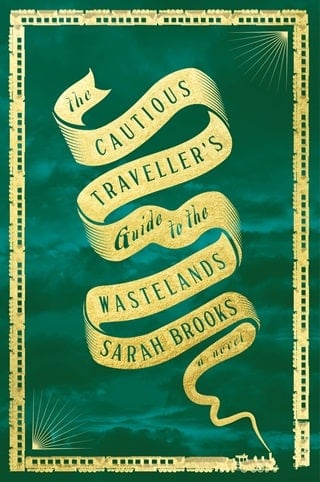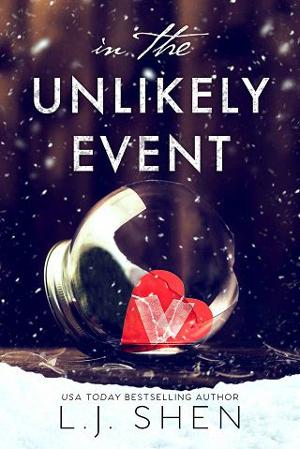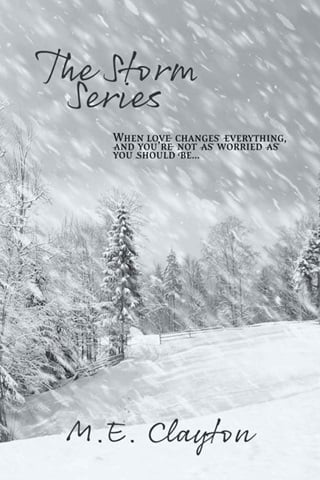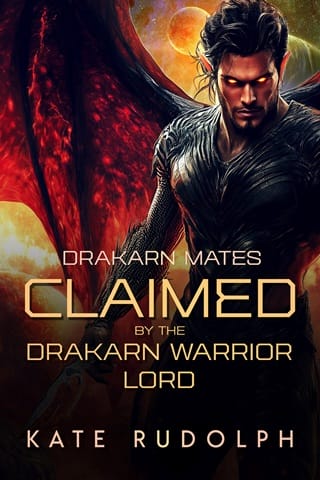2. The Wall
"It's ugly," says Marya. Grey stone that seems to swallow up all the light left in the already dull sky; that makes even the river seem dead before it.
"It was built to be strong, not to be beautiful," says Suzuki.
The implacable face of the Russian Empire, grimly defending its territory. Keeping the terrors out. For those entering the Wastelands, a final, fearsome warning that you are leaving the strong paternal embrace of the Tsar, that all order and safety from here on is lost. And for those approaching from the other side, a challenge: You are not welcome here.
We are the terrors now,she thinks.
They are in the Cartographer's tower, she and Suzuki and the Professor. Suzuki is still pale, and there is a sheen of sweat on his forehead, but he bats away her attempts to ease him into a chair.
"I am not about to keel over," he says.
"You just did," she snaps, more angrily than she intends. The Professor makes a little hum and turns away to examine something intently on one of the telescopes.
"It hurt you," she goes on. "When the dart pierced the lichen, it hurt you and Weiwei both."
"I am fine, it is not a sickness—"
"But it is weighing you down, can't you see it? You have to go to the infirmary, before we reach the Vigil, before it hurts you anymore." She sees her father, sand and water bleeding from empty eyes, and she cannot bear it—she cannot bear to see it happen again.
"There is nothing a doctor can do."
And he is right. What good will a physician do? No, her father could not save himself, but Suzuki can.
"Let me see through the telescope," she says, her eyes not leaving the Cartographer's face. "The prototype. If what you say is true then this is the last chance for me to see for myself, before we reach the Wall. Unlock it and let me see."
The Professor looks from her to Suzuki, a puzzled expression on his face.
Suzuki shakes his head. "No. No, you can't."
"Why not? Is it broken? You have said that you no longer want to see, but I do. I want to see what my father's skill has revealed. These threads, these veins. It is the least you can do for me." She goes to the scope and throws off its cover. She hardens her voice. "Let me see or tell me why I can't."
After a long moment, he says, quietly, "I think you know."
She knows.For all this time, she has thought only of the end of her father, but now she sees those final weeks; sees him always turning away, closing doors. She sees what he had kept so closely hidden. She begins, "When I found my father…" The words threaten to dry in her mouth but she forces herself to go on. "When I found him… that morning… there was water on the desk, sand on his cheeks. And his eyes were open, colorless. As if they had turned to glass and the glass had turned back into water and sand. As if he had wept away all that was left of his work." She had feared that saying the words out loud would make these fragile memories dissolve into the air, taking her father with them. But as she tells Suzuki and the Professor about how she had cleaned away the water and the sand, how she had closed her father's eyes so that no one would see what she had seen—she feels a burden lifting. "I thought it was the taint of the Wastelands, of sickness."
"And now?" Suzuki is standing up from his chair. "Now what do you think?"
She walks up to him. "I think that looking through his new lenses didn't just let you see the patterns, the changes. I think that it changed you both as well." Slowly, she pushes up his sleeve, careful not to touch his skin but shocked nonetheless at her own boldness, at the intimacy of the action. He stays very still and she hears the Professor's intake of breath when the markings on his arm are revealed. "I am right, aren't I?" she says, stepping back.
He holds her gaze. "It was on the second crossing after we had begun to use the new scope," he says. "We realized then that we were both changing, as if the landscape was imprinting itself onto our bodies. I tried to hide it at first, but then your father came to me and told me that he had begun to see differently—prismatically, he called it. He said he could see too much, even without the scope. It was wonderful, he said. And unbearable." He stops, then begins again. "Your father thought that it was a warning, a sign of our hubris—that we had over-reached ourselves. We weren't meant to look too closely, he said. Another sign that we had to stop, to close the railway down for good. We argued. The last words that I remember speaking to him were words of anger."
Grief is etched into his face and it takes all her willpower to gesture to the scope and say, "I want to see. I want to see what you both saw."
"No, it's too dangerous. How you can ask this after—"
"And how can you still not see?" She raises her voice. "Did it not hurt you, just now, the needle in the lichen? As if the poison was in your veins. What you saw, the changes it caused in you… What if my father was wrong—it was not a warning, not a sickness but a connection? It hurt him, leaving the Wastelands behind. We thought it was the loss of his reputation, his livelihood, that broke him but it was more than that, it was the loss of all this that killed him." She sweeps her arm around the tower, the windows, the mold creeping inward from the edges of the glass, the patches of turquoise lichen appearing on the floor. "You mustn't try to stop it, to break the connection; you must keep looking."
Suzuki says nothing, but she feels the release of tension in his posture.
"You are not a man of the Company," she whispers. "You are a man of the train. And of the Wastelands. Of both, together."
He knows it. He knows it just as she knew what had happened to her father, though she couldn't admit it to herself. "I want to see what my father saw," she says, again. "What harm can it do now?"
Wordlessly, Suzuki takes a key from a drawer and unlocks the cover on the telescope's eyepiece. Marya puts her eye to the glass and adjusts the sights and it takes her a moment to understand what she is seeing—gleaming threads, like filaments caught in sunlight, stretching across the grasslands. She understands now what Suzuki had meant—like seeing a tapestry and its reverse at the same time. The pattern and how the pattern is made.
She steps aside to let the Professor look, and when he straightens up she sees him brushing tears from his eyes.
"All these years of watching," he says, "and now, to see this." But his voice is stronger; there is a new sense of purpose in his posture.
"Perhaps there is more work for Artemis after all," she says.
A little while later, Artemis—reborn—announces that he will return to his carriage and set to his work. "I will leave you to your"—he waves vaguely at the air—"talking."
"To think that I pride myself on my observation," says Suzuki, after he has gone. "I am tempted to hand back all my qualifications."
"He hid himself well," says Marya. "Only Weiwei knew."
"Weiwei! Of course she would know."
"What do we do now?" she says. "Let me get you some water, at least."
But Suzuki's eyes have drifted to her hair. "You have a passenger," he says, and she reaches up to feel the wings of a moth still tangled there. When she frees it, it rests on her hand.
"It's beautiful, isn't it?" she says. But he is only looking at her. He catches hold of her other hand, his fingers closing over hers. And when she looks down she sees the lines on his skin unfurling, spreading onto her own hand, winding up her bare arm. She jerks her hand away and the lines vanish. She had felt it, in those few seconds—the expanse of it, the immensity. The possibilities. All those lines, reaching out—all those contours and paths. All waiting.
Suzuki holds his arm to his chest. "I didn't mean—"
She breathes in to calm her skittering heart. Then she reaches out to take his hand again. The rail and the river and the Wall, imprinted on their skin.
They are slowing down as they approach the bridge, and the rhythm of the train changes as they leave the solidity of the ground. The river and the Wall stretch away into the distance on either side of them and she feels a sense of vertigo, caught between the heights and the depths.
A shadow under the water. The body of some great beast, following its own path down the river, oblivious to the train above it. And now the Wall is nearly upon them and it reaches up, impossibly high, and ahead there is an iron door, heavy and implacable, and even the great train must yield before it.
Suzuki rubs his fingers over her knuckles and touches his forehead to hers. She feels the pull of the brakes, the creaking of the train coming to a halt. Steam obscures the view from the windows.
The lines on their skin stop moving.
 Fullepub
Fullepub 



